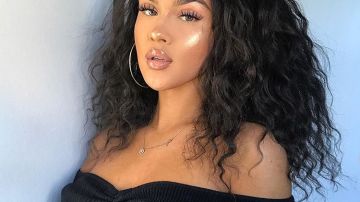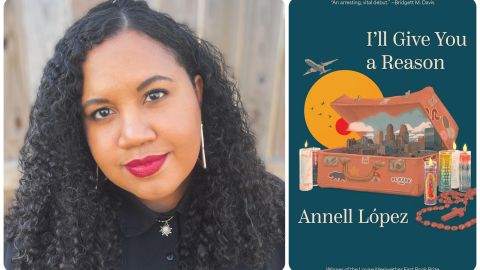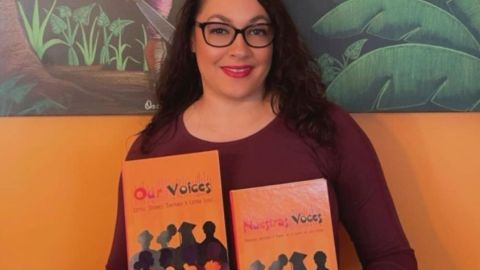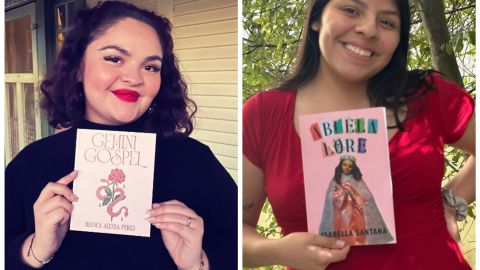White Girls Are Pretending to Be Women of Color on Instagram & We Need to Call Them Out
It’s about time our society has a nice, long discussion about race

Photo: Instagram/eemmahallberg
It’s about time our society has a nice, long discussion about race. It’s a complex topic with tons of entry points but right now I’d like to talk about what it means to be Black. Specifically, we need to take a look at what it means to fake Blackness as a white person because it’s become an actual trend on Instagram. What does it mean when white women try to appear mixed-race or straight-up Black for their own social or financial gain?
Recently, the trend has escalated from “appropriation” (a nice term used to define the Kardashians) to the more problematic and cringe-worthy “n*ggerfishing.” Writer Wanna Thompson explored in-depth the world of white women influencers who are leveraging the power of bronzer and the magic of hair weave (or braidouts to create texture) to look like women of color (which many times comes across as mixed-raced or Afro-Latina). The essence of the name of this trend: white women are tricking people (i.e. catfishing) them to believe they are actually racially Black.
Can we start a thread and post all of the white girls cosplaying as black women on Instagram? Let’s air them out because this is ALARMING.
— Wanna (@MadeByWanna) November 7, 2018
On its face, this behavior has created another firestorm of emotion within communities of color. The influencers in question have begun not only appropriating one element of Blackness (i.e. hair or lips) but have combined the fullness of Black beauty to transform into unrecognizable versions of themselves. They have efectivelyf created Black alter egos.
Emma Hallberg, for example, has come under fire for her mixed-race look, which she claims to have achieved by sleeping in braids at night and getting a tan. Twitter critics of her look have noted that the aesthetic has even caught on with her boyfriend.
https://twitter.com/petitbonnibel/status/1060154958333526016
Many critics, who are women and men of color themselves, point out how they have long been aware of these behaviors, but these women’s full-fledged transformations have taken the issue to a new level.
Let me catch my breath 😳😳😳 pic.twitter.com/PZnIbru181
— patty. (@jesuispattieb) November 7, 2018
As one Twitter user pointed out though, these women may just be picking up on this aesthetic because they learned from one notorious family (i.e. The Kardashians whom Twitter identifies as “patient zero” of this trend) just how profitable it can be:
Y’all forgetting this individual? pic.twitter.com/j8ZeTH1oJM
— unmutedjordan (@unmutedjordan) November 8, 2018
Other people reacted with more frustration than annoyance at what this means for the direction our culture is taking in dictating beauty standards.
“I’m not offended,” said Dana Balch, a mixed-race woman who works with influencers professionally. “I’m annoyed because things aren’t so far apart from when these same girls thought my hair was weird in middle school. Like our culture isn’t a costume.”

Dana Balch. Photo: via @dbalch
“This reminds me of when people praise mixed babies [or people] as the only acceptable form of blackness,” Balch continued, suggesting that these white women appearing mixed only perpetuate a cycle of representing a certain type of Black woman (typically light-skinned, with light eyes, long soft curls, and otherwise racially ambiguous aesthetics).Lately, appropriation has evolved to a look that is “kind of Black” and “kind of white.” Balch called it “next-gen blackface.”
Beyond the message, which says black beauty is acceptable only when it’s diluted or mixed (which is problematic, exclusionary, and unattainable for so many women), white women “borrowing” Blackness for their own social or financial gain is an insidious form of white supremacy with a negative impact far beyond social media. If we explore the issue fully, we may find this behavior is rooted in the history of White people colonizing everything that is Black for profit – while never actually sharing the gains with Black people or allowing Black people to gain from their own culture. Taking Blackness is the crime, but creating oppressive narratives and standards that at the same time exclude Black people from being able to emotionally, financially, or socially benefit is the lasting injury.
“As an Afro-Latina I feel like it has been a long road to finding the beauty in my hair and my features. The reason for that is partly due to the lack of representation of Afro-Latinas when I was growing up,” said Stephanie Ferreira, who resembles the mixed-race aesthetic many of these influencers are now peddling. “Eurocentric features were always praised even from the people of color that I was surrounded by. The rejection of our African roots was so prevalent. Therefore, the more you had these ‘finer’ features or lighter skin, the more attractive you were considered. That’s what I thought was beautiful. We are finally being represented in the media! Our hair and bodies are beautiful and praised. However, our culture and features are being monetized by white women while we are still being oppressed. It’s infuriating that we are seeing our beautiful features being bought or ‘faked’ by white women. These women are profiting from this false representation and using our culture as a trend. I feel like this is harmful to the progress that we have made as Afro-Latinas.”

Stephanie Ferreira. Photo via: @la_unica6089
White Europeans and White Americans who essentially choose to take from Black culture and wear it (as if it is a fur coat or snakeskin boots) continue to behave as if they are the owners of Black bodies. They have the right to peel away the surface layers of Blackness and wear them for fashion, attention, and most importantly financial gain and power. It is in no way dissimilar from the behaviors of colonialism and enslavement. These white influencers’ use of black culture, as if it is an object, is at best, ignorant, and at worst, white supremacist. The belief that as a white person you can own someone else —their body and culture because they are simply the object or tool existing for your use and gain.
When White people take anything from Black people — whether it’s bi-racial Black people, or Black people of various ethnicities, including Latinx people, Caribbean people, etc., they are no worse than their ancestors who have historically taken so much from Blackness to gain power and wealth. It is behavior rooted in the same concept that created a ‘Black’ race and a ‘White’ race for the sake of oppressing one and bolstering another.
From Kylie Jenner to Emma Hallberg, it is dangerous that these influencers brush their behavior off as a harmless love of black things, like being tan and wearing certain cultural styles. The same black bodies that are denied the ability to gain power from their cultural styles are then used for the profiting and gain of white people. A literal example of this is Heather Sanders and Blac Chyna, Black women who inspired much of Kylie Jenner’s aesthetic; yet Kylie became the billionaire on trends that Sanders and Chyna have been wearing and selling for years.
For real. People think Kylie Jenner's look is natural. That bitch just copied everything Heather Sanders had. BLACK GIRL INSPIRED APPEARANCE
— Aria (@lil_arivert) June 14, 2015

Sanders (left); Jenner (right). Photo via Instagram.com/kyliejenner and Instagram.com/heathersanders_
Is this not what slave masters and colonizers of the world have done for centuries, using Black bodies for their own economic gain and power while denying these same Black bodies to ability and economy to build up their own communities?
As painful as this deep-seated truth is, it is time that we go beyond calling this appropriation and “n*ggerfishing.’ It is the objectification of Black people by those who believe they are superior and entitled to do so. Everyone has skin in the game, from Black people of all ethnicities who deserve to gain from their own culture to White people committed to fighting against White supremacy.
The only way we all gain is by accepting what it is that we own — our culture, our skin, our beauty — and using it authentically while allowing others to do the same. Maybe then, we can all feel empowered in our own skin.

















